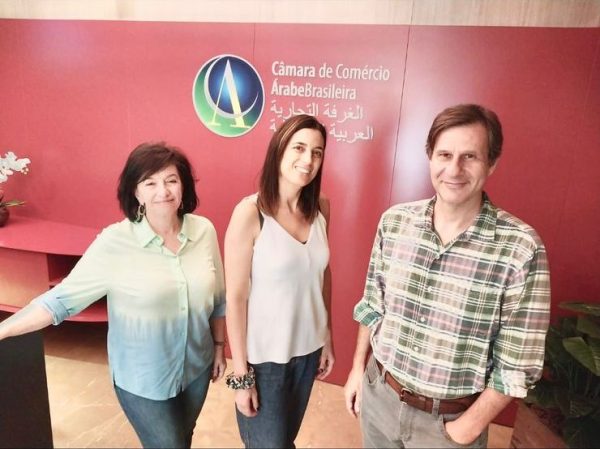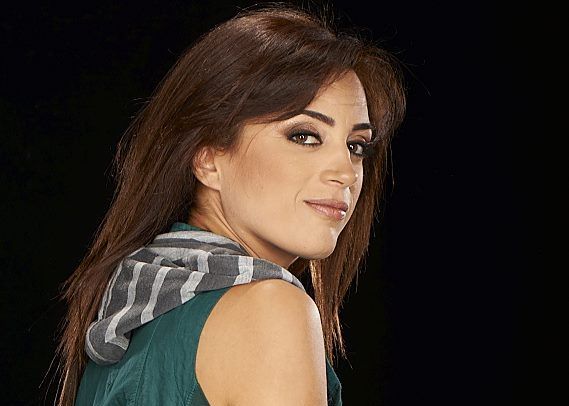São Paulo – Producer-director Carmen Labaki will do a documentary on Brazilians living in Lebanon. The film will be part of the film series “The World in Lebanon” that the director is making on the foreign presence in the Middle East country and has produced episodes on Belgium, Italy, Austria, Finland, and Greece. Labaki is Brazilian Lebanese – she was born in Lebanon but holds citizenship in Brazil.
By demonstrating how foreign communities live, the documentaries also intends to show the history and culture of Lebanon. According to Labaki, they aim to emphasize what foreigners have done in and for Lebanon. “What Brazil has given Lebanon in history, culture, trade?” she says, explaining these are the type of questions that will guide her documentary on the country.
The filmmaker bases the work on the perception of how Lebanese love Brazil, even those who have no connection to it. According to Labaki, 80% are fans of Brazilian football. She believes this connection may come from being like-minded peoples in the sense of how they host visitors at home, talk similarly, and other traits. There is also the concept spread by Brazilian emperor Dom Pedro II of Brazil, who visited Lebanon. “He wandered through many cities and villages, promoting Brazil in them, saying how Brazil was marvelous,” he says.
Labaki mentions some potential approaches of the documentary, like how Brazilian families have built their lives in Lebanon, the architecture by Oscar Niemeyer in the country, the Lebanese-adapted feijoada, the Brazilian culture institute in Lebanon. “The tale of people who have adapted, and people who haven’t,”, she says. She adds that she can’t fail to mention the Lebanese who moved to Brazil, although they aren’t the central part of the film production.

The documentary on Brazil will be part of the second five-episode batch of The World in Lebanon that the filmmaker has started making. Besides Brazil, she’ll address Morocco, Denmark, Spain, and the Czech Republic. A production on France has already started as well. They will be all screened on the LBCI channel in Lebanon, which owns their exclusive transmission right in the country. The 35-minute episodes are in Arabic and English.
The filmmaker is now seeking support and sponsors for the documentary about Brazil. Labaki already has the support of the Embassy of Brazil in Beirut and the Ministry of Culture of Lebanon, the latter of which supports all episodes. She says the production about Brazil may be in Portuguese besides English and Arabic, and that it may be longer – featuring two 35-minute episodes or one 70-minute special. The LBCI only owns the right for the Lebanese television, so this doesn’t prevent the documentaries to be screened on other channels in Brazil or in schools, universities, movie theaters, and other venues worldwide. Labaki wants them to be the promoted as far as possible.
On Monday (11) afternoon, Labaki visited the headquarters of the Arab-Brazilian Chamber of Commerce (ABCC) in São Paulo, where she was welcomed by Institutional Relations Vice President Mohamad Orra Mourad and Communication & Marketing Vice President Silvia Antibas. The filmmaker presented the documentary project on foreigners in Lebanon to both.
Carmen Labaki
Carmen Labaki currently lives in Lebanon but lived in Brazil from 1997 to 1999 and travels frequently to the Latin American country for short stays. She studied Journalism and Audiovisual Communication and works on documentaries and footage for news and publicity. Her productions are usually sociological and anthropological involving social and human issues.
Shooting about Brazil holds a special meaning for Labaki. “I feel very Brazilian at heart. I love Brazil, I miss it when I don’t come here. Since I was a child, I’ve felt very Brazilian. My father always received so many Brazilians at home, the [Brazilian Portuguese] language was very familiar to me, so I learned it quite fast,” she said in Portuguese.
Those interested in supporting or sponsoring the documentary may contact her via email at carmenlabaki@gmail.com or phone at +009613578557.
Translated by Guilherme Miranda




